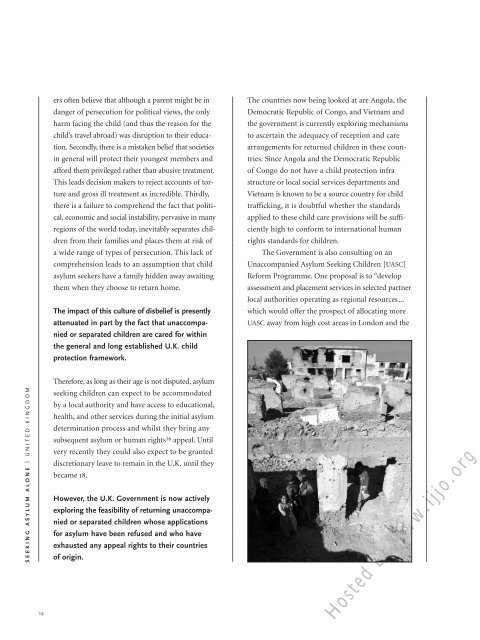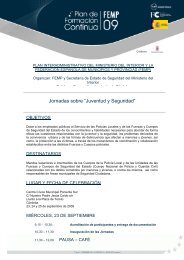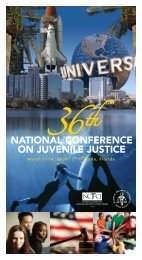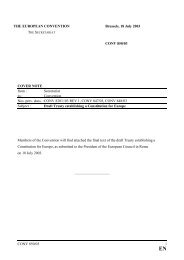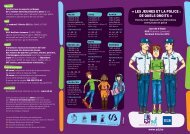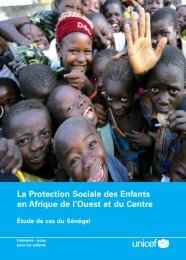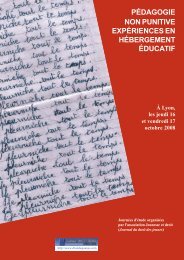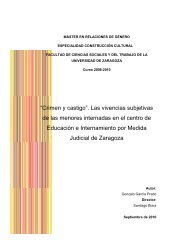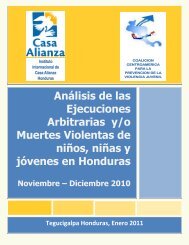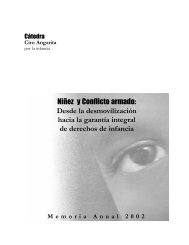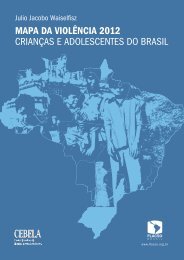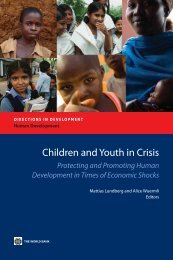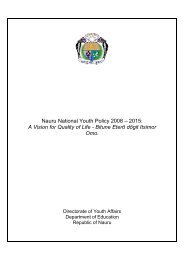Hosted by www.ijjo.org
Hosted by www.ijjo.org
Hosted by www.ijjo.org
You also want an ePaper? Increase the reach of your titles
YUMPU automatically turns print PDFs into web optimized ePapers that Google loves.
ers often believe that although a parent might be in<br />
The countries now being looked at are Angola, the<br />
danger of persecution for political views, the only<br />
Democratic Republic of Congo, and Vietnam and<br />
harm facing the child (and thus the reason for the<br />
the government is currently exploring mechanisms<br />
child’s travel abroad) was disruption to their educa-<br />
to ascertain the adequacy of reception and care<br />
tion. Secondly, there is a mistaken belief that societies<br />
arrangements for returned children in these coun-<br />
in general will protect their youngest members and<br />
tries. Since Angola and the Democratic Republic<br />
afford them privileged rather than abusive treatment.<br />
of Congo do not have a child protection infra<br />
This leads decision makers to reject accounts of tor-<br />
structure or local social services departments and<br />
ture and gross ill treatment as incredible. Thirdly,<br />
Vietnam is known to be a source country for child<br />
there is a failure to comprehend the fact that politi-<br />
trafficking, it is doubtful whether the standards<br />
cal, economic and social instability, pervasive in many<br />
applied to these child care provisions will be suffi-<br />
regions of the world today, inevitably separates chil-<br />
ciently high to conform to international human<br />
dren from their families and places them at risk of<br />
rights standards for children.<br />
a wide range of types of persecution. This lack of<br />
The Government is also consulting on an<br />
comprehension leads to an assumption that child<br />
Unaccompanied Asylum Seeking Children [UASC]<br />
asylum seekers have a family hidden away awaiting<br />
Reform Programme. One proposal is to “develop<br />
them when they choose to return home.<br />
assessment and placement services in selected partner<br />
local authorities operating as regional resources...<br />
The impact of this culture of disbelief is presently<br />
which would offer the prospect of allocating more<br />
attenuated in part <strong>by</strong> the fact that unaccompa-<br />
UASC away from high cost areas in London and the<br />
nied or separated children are cared for within<br />
the general and long established U.K. child<br />
protection framework.<br />
Therefore, as long as their age is not disputed, asylum<br />
SEEKING ASYLUM ALONE | UNITED KINGDOM<br />
12<br />
seeking children can expect to be accommodated<br />
<strong>by</strong> a local authority and have access to educational,<br />
health, and other services during the initial asylum<br />
determination process and whilst they bring any<br />
subsequent asylum or human rights 16 appeal. Until<br />
very recently they could also expect to be granted<br />
discretionary leave to remain in the U.K. until they<br />
became 18.<br />
However, the U.K. Government is now actively<br />
exploring the feasibility of returning unaccompanied<br />
or separated children whose applications<br />
for asylum have been refused and who have<br />
exhausted any appeal rights to their countries<br />
of origin.<br />
<strong>Hosted</strong> <strong>by</strong> <strong>www</strong>.<strong>ijjo</strong>.<strong>org</strong>


